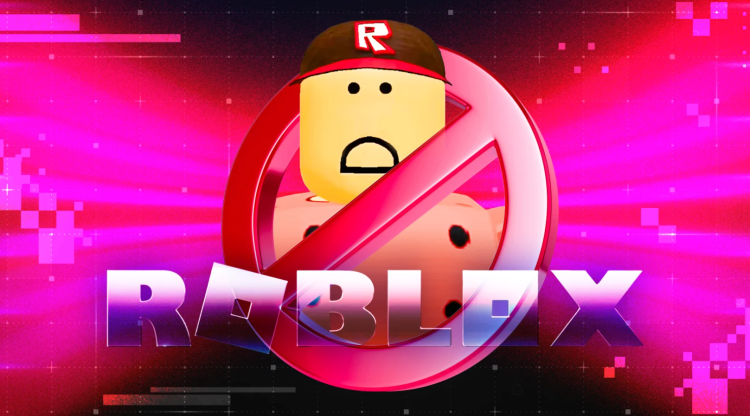
Roblox Bans Predator-Hunting YouTuber Schlep After Six Arrests
A well-known Roblox predator-hunting YouTuber, “Schlep,” has been banned from the platform after years of making sting videos that resulted in multiple arrests. Roblox says his work violated its rules against vigilante actions, while Schlep claims he is being punished for exposing safety issues. The ban cuts off his main content source and revenue stream, sparking a wave of online support under #freeschlep.
Michael, known online as Schlep, says his fight against predators on Roblox comes from a deeply personal place. When he was eight, he says a popular Roblox developer groomed him by sending sexual and violent content, pushing him toward a suicide attempt. His mother reached out to Roblox at the time, but he says they ignored her. Now 22, he has spent the last two years making videos exposing and confronting suspected predators on the platform.
Roblox is one of the largest online gaming hubs in the world, with more than 120 million monthly users. About 40% of those are under 13, making content moderation a massive challenge. Bloomberg reported in 2024 that over two dozen people had been accused of abusing or abducting victims they met on Roblox since 2018. Schlep built a YouTube following of over 620,000 by showing how predators operate there, often working with groups like EDPWatch and Predator Poachers to carry out sting operations.
His videos follow a familiar “To Catch a Predator” format. In one recent case, a team member posed as an underage girl chatting with a man from Central California. The man agreed to meet at a local park in June, expecting to meet a minor. Instead, Schlep and fellow YouTuber JiDion from EDPWatch showed up, filming as police arrived to arrest him. That video now has 2.7 million views.
On Friday, Roblox sent Schlep a cease-and-desist letter, accusing him of “unauthorized and harmful activities.” The company said he engaged in simulated child endangerment conversations and encouraged users to move chats off-platform. Roblox closed all of his accounts—some dating back to his childhood—and told him he could not create new ones.
That same day, Roblox chief safety officer Matt Kaufman published a blog post clarifying the company’s stance on moderation and law enforcement cooperation. One section focused on “vigilantes,” defined as individuals or groups who entrap users or self-police the platform. Kaufman wrote that such accounts risk removal or permanent banning. Schlep believes this post was aimed directly at him.
Online, reactions have been strong. The hashtag #freeschlep trended on X for days, with many calling him a hero. “Schlep deserves a medal for the he’s done to stop these monsters,” one user wrote. Another said it was “sad to see how Roblox is treating him when he is making the platform a better place.” Roblox declined to respond directly to Schlep’s claims, instead pointing back to Kaufman’s blog.
A Roblox spokesperson said it’s important to work with credible sources when dealing with predators and accused vigilante groups of violating policies by sharing personal information, engaging in sexual conversations, lying about their age, and operating with profit motives rather than sharing evidence with the company.
The problem Schlep highlights is easy to find. After the interview, he shared links to Roblox “condo” servers—spaces designed for sexual roleplay. Within minutes of joining, the reporter saw users openly suggesting sexual activity in chat, even after someone claimed to be a minor.
Schlep says he has reported predators to Roblox through official channels but never received meaningful responses. The cease-and-desist letter, he says, was the first real contact from the company. He argues that opening a direct line with him would be an admission that predators operate on Roblox.
Other creators have backed him. Benjamin Simon, known as Ruben Sim, said Schlep’s work is not vigilante justice because he reports suspects to police rather than acting as law enforcement himself. Simon has his own history with Roblox—he was sued by the company in 2021 and later settled for $150,000, agreeing not to make new accounts.
Predator-hunting content has always been legally and ethically controversial. The original “To Catch a Predator” series ended after a $105 million lawsuit settlement related to a sting target’s suicide. Many amateur hunters have since taken up the format, but law enforcement officials sometimes criticize their methods. In March, a Virginia prosecutor expressed concern about a sting Schlep and JiDion conducted without police involvement until after the confrontation, though an arrest still followed.
Schlep insists his methods are legal and says his operations follow the law. His YouTube work is monetized through ads, merchandise, and a membership site with unfiltered arrest footage. He also runs “Maliboomer,” a family-friendly Roblox channel with 150,000 subscribers focused on a rollercoaster game. Losing his Roblox access effectively ends both projects.
“I have hundreds of thousands of subscribers that I’m pretty much gonna have to quit entirely because I can’t access Roblox anymore,” he says. “That’s a lot of my revenue streams just totally cut off. So yeah, it’s pretty rough.”
Despite the setback, he says the public support has been encouraging. “They are a multi-billion dollar corporation, and they can pretty much do whatever the hell they want. They got lawmakers on their side. I view this as kind of a David and Goliath situation. I am peeling back the curtain of what is really going on, and I am definitely upsetting some of the people at Roblox.”

Source: PCMAG
Comments